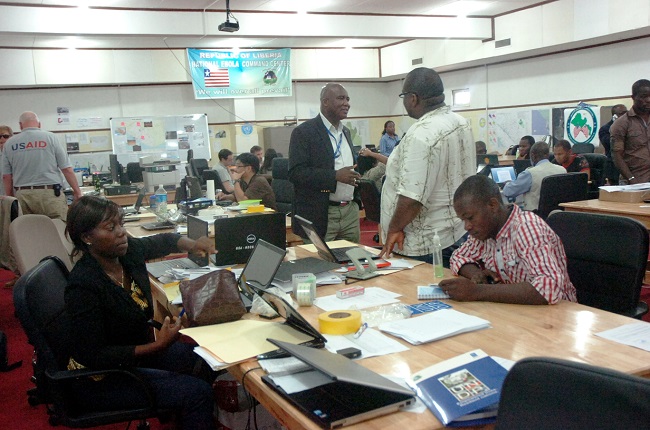Liberian volunteers limit spread of ebola
The number of new cases of Ebola in Liberia is decreasing each day and community volunteers’ work has contributed substantially to this result.
UNDP Liberia has recruited 1,300 volunteers who are being paid $80 per month to go door to door, every day in their communities, to track down anyone who shows symptoms of the disease and get urgent medical help.
UNDP’s Ebola project Coordinator, Dr Masoka Fallah, said that it’s only by quickly identifying people who have been infected – as soon as they show symptoms – that the spread of the virus can be prevented.
“The people we’ve recruited to be Active Case Finders are already leaders in their community and are highly respected,” he said. “With Ebola, all schools were shut down. Private school teachers aren’t getting paid. We’ve brought in a large number of those teachers to help with Ebola prevention. They know everybody in the community and are listened to.”
Bokaryee Geeplay is an Active Case Finders in Popo Beach, part of New Kru Town on the outskirts of Monrovia and one of the most affected regions of Liberia. One of the first cases he identified was his own niece.
“It was during November. My niece was just six, and she got a fever and wasn’t feeling well. I saw the signs and called headquarters so they could arrange for her to get to the clinic. She struggled for two weeks but eventually she died,” he said.
With the other Active Case Finders, Bokaryee also arranged for his family members to be placed under quarantine.
“There are many children living in that house. I wanted to make sure that if any of them showed any signs they could access treatment straight away. I also told them that it was important that they stay inside because we will only get rid of Ebola for good if we are strict about quarantine.”
Other members of the community arranged for food to be brought to the house, and Bokaryee’s sisters continued selling peppers from a stand inside the quarantine area.
Dr Fallah said that the work of these volunteers is not limited to just identifying sick people.
“The Active Case Finders are out there talking to people, they’re making sure everyone follows preventative measures. They’re also helping survivors of Ebola who sometimes face problems when they return home,” he said. “The Active Case Finders are showing the rest of the community that survivors should not be shunned.”
United Nations Development Program in Liberia


